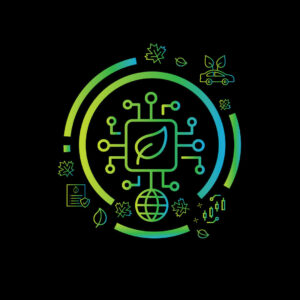
Deloitte: Canada needs to accelerate commercialization of clean tech
By Adam Freill
Concrete Construction Green ConstructionDeloitte Canada report identifies challenges to achieving climate goals and outlines opportunities for clean technology solutions.
Canada cannot meet its 2030 emission reduction target and 2050 net-zero goals without accelerated commercialization and adoption of clean technology, says a recent report from Deloitte Canada.
Canada’s 2030 Emissions Reduction Plan identifies a path for the nation to reach an emissions reduction target of 40 to 45 per cent below 2005 levels by 2030 and net-zero emissions by 2050, but the Deloitte report, Scaling Solutions: Accelerating the commercialization of made-in-Canada clean technology, suggests that made-in-Canada clean technology needs to be deployed to meet those goals.
“Achieving Canada’s 2030 emission reduction target requires the rapidly accelerated deployment of clean technology that is commercially available today,” stated Karen Hamberg, partner in financial advisory for Deloitte Canada and national clean technology leader. “Questions around technical performance, cost, and greenhouse gas (GHG) abatement potential are critical. The leaders in Canada’s clean technology industry export to, and compete in, global markets that have developed commercial ecosystems and associated structures that fast-track the deployment and use of climate solutions. There is a critical role for the public and private sector to do the same right here at home.”
According to the Deloitte report, building coherent commercial ecosystems requires an assessment of four key requirements: technical readiness; market readiness; policy readiness; and organizational readiness.
“If Canada intends to rely on its cleantech industry to compete in a decarbonizing world, we must quickly and effectively equip those leading companies so they can be globally competitive and dominant,” said Michael Tang, managing partner in Deloitte Canada’s technology, media and entertainment, and telecom practice. “A clean technology industrial strategy that identifies economic priorities and a roadmap to implement it is needed; however, it should also include ambitious targets specific to global market share, economic impact, job creation, indigenous reconciliation, environmental benefits, realization of climate goals, and Canada’s continued social prosperity.”
While not the highest contributor to greenhouse gas emissions, buildings account for 12 per cent of direct greenhouse gas emissions, making the construction sector a target for improvement. The report explains that policies supporting the decarbonization of steel and cement manufacturing will make emission reductions possible in the construction segment.
The full report, which includes an overview of commercial challenges and market accelerants for seven economic sectors, is available on the Deloitte website.





